Find Help
More Items From Ergsy search
-

Will a heart bypass make me live longer?
Relevance: 100%
-

Coronary Bypass Grafting (CABG)
Relevance: 43%
-

Intro to Angiograms, Angioplasty & Coronary Bypass Grafting
Relevance: 40%
-

Heart Failure : Heart failure that cannot pump
Relevance: 35%
-

What is the prognosis for someone with heart failure?
Relevance: 30%
-

Heart Failure : When the heart becomes stiff?
Relevance: 30%
-

Heart Failure : What is heart failure?
Relevance: 30%
-

Heart Failure : The normal heart
Relevance: 30%
-

Heart stents
Relevance: 29%
-
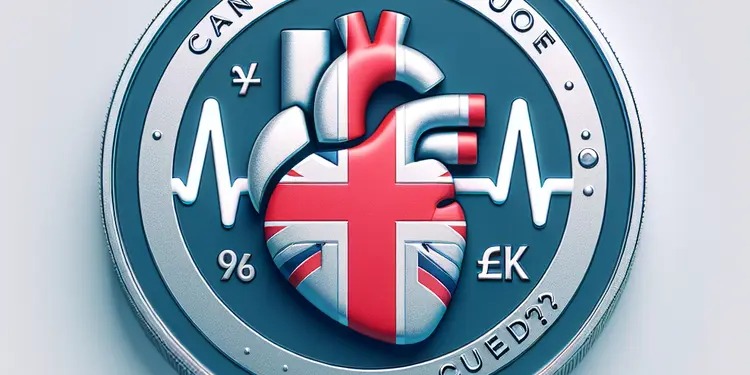
Can heart failure be cured?
Relevance: 29%
-

Heart Failure : Symptoms of heart failure
Relevance: 28%
-

Is my abnormal heart rhythm dangerous?
Relevance: 27%
-

Heart Attack Stories | NHS
Relevance: 27%
-

Heart failure introduction
Relevance: 27%
-
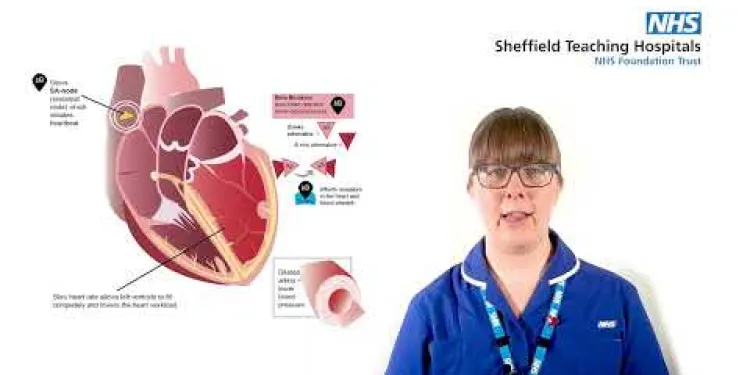
Medicines of the heart
Relevance: 26%
-

Is my abnormal heart rhythm dangerous?
Relevance: 26%
-

Heart Attack Stories | NHS
Relevance: 25%
-
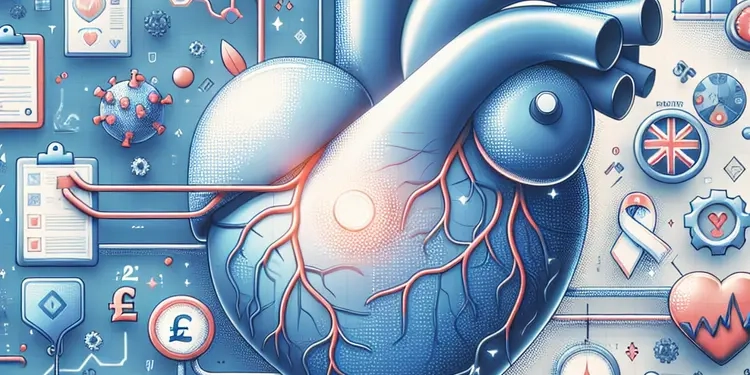
What is heart valve disease?
Relevance: 25%
-

What should I do if I experience symptoms of heart failure?
Relevance: 25%
-

What are the long-term effects of a heart attack?
Relevance: 24%
-

Heart Attack Symptoms - Peter Dale (Tubes) | NHS - BSL version
Relevance: 24%
-

Heart Attack Symptoms - Help Us Help You | NHS
Relevance: 24%
-

What causes heart failure?
Relevance: 24%
-

Are there different types of heart failure?
Relevance: 24%
-

How is heart failure diagnosed?
Relevance: 24%
-
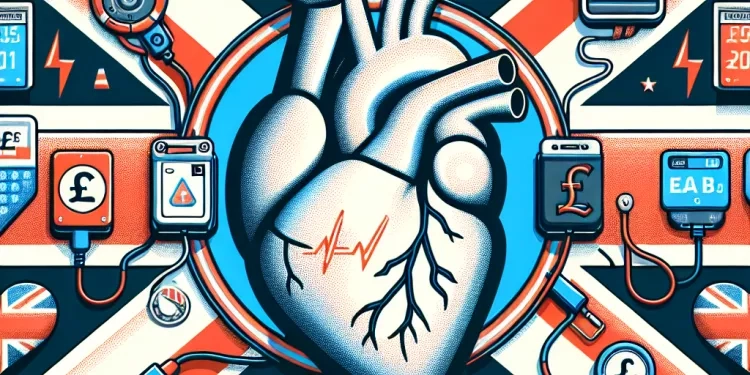
Can a defibrillator restart a stopped heart?
Relevance: 24%
-

Can heart failure be prevented?
Relevance: 23%
-

Is it possible to prevent a heart attack?
Relevance: 23%
-

Can heart attack symptoms vary by age?
Relevance: 23%
-

How long do heart attack symptoms last?
Relevance: 23%
-

Heart Failure : Treatment and monitoring of fluid retention
Relevance: 23%
-

What are the risk factors for a heart attack?
Relevance: 22%
-

Is it possible to have a heart attack without chest pain?
Relevance: 22%
-

Is Baxdrostat used in treating heart failure?
Relevance: 22%
-

Are there specific fats that support heart health?
Relevance: 22%
-
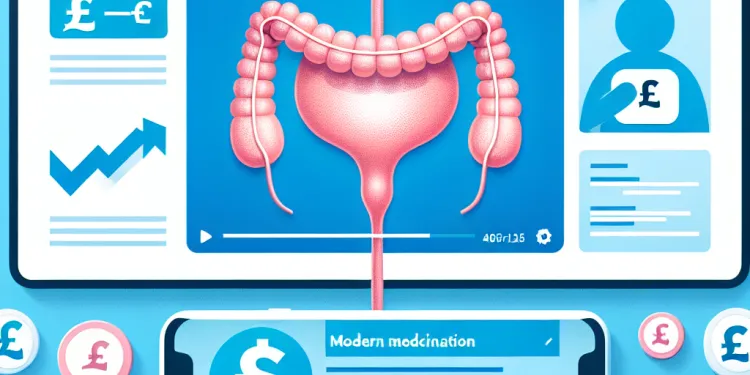
Can you live without an appendix?
Relevance: 22%
-
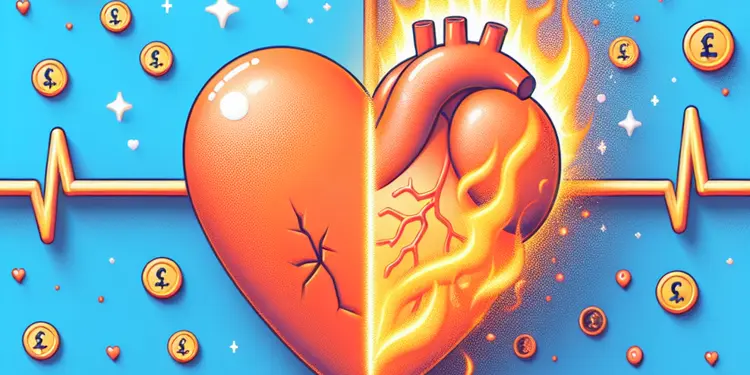
How can I differentiate between heartburn and a heart attack?
Relevance: 22%
-

Can heart failure affect other organs?
Relevance: 22%
-

What is the role of diet in managing heart failure?
Relevance: 22%
-
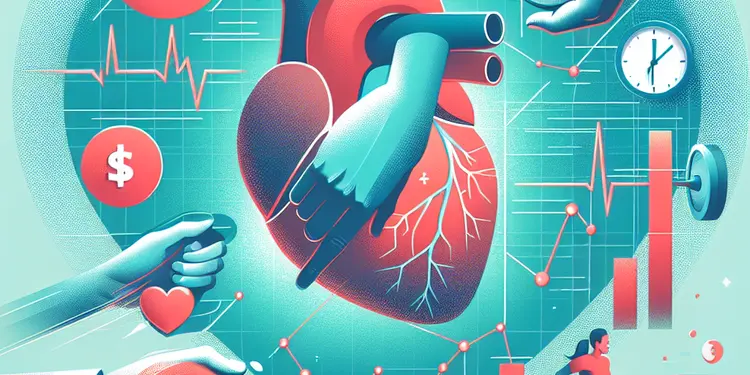
Can physical exertion trigger a heart attack?
Relevance: 22%
Will a Heart Bypass Make Me Live Longer?
Understanding Heart Bypass Surgery
Heart bypass surgery, also known as coronary artery bypass grafting (CABG), is a common procedure used to treat coronary artery disease. It involves diverting blood around blocked or narrowed arteries to improve blood flow and oxygen supply to the heart. This surgery can help alleviate symptoms such as chest pain and reduce the risk of heart attacks.Factors Influencing Longevity Post-Surgery
Several factors determine whether a heart bypass can prolong life. These include the severity of the underlying heart disease, the patient’s overall health, age, and lifestyle choices. In many cases, CABG can significantly improve quality of life and extend longevity, especially when paired with modifications such as a healthy diet, regular exercise, and smoking cessation.Clinical Outcomes in the UK
Studies have shown that patients in the United Kingdom who undergo CABG often experience improved survival rates. National Health Service (NHS) data indicates that, for many patients, the surgery reduces symptoms and lowers the chances of future cardiac events. However, individual outcomes can differ, and it’s essential to have a detailed discussion with a healthcare provider to understand personal risks and benefits.The Role of Medical Follow-Up and Lifestyle Changes
The success of a heart bypass in extending life is closely linked to meticulous medical follow-up and adherence to prescribed lifestyle changes. Regular check-ups allow for prompt management of any complications. Adopting a heart-healthy lifestyle, including a balanced diet, exercise, and avoiding tobacco, is crucial in maximizing the benefits of surgery.Conclusion
While heart bypass surgery can potentially extend your life, the extent of this benefit varies based on individual circumstances. Patients who follow medical advice and make recommended lifestyle changes often see the most significant improvements in both longevity and quality of life. Consulting with healthcare professionals in the UK on this matter can provide personalized insights and help make informed decisions.Will a Heart Bypass Help Me Live Longer?
What is Heart Bypass Surgery?
Heart bypass surgery is a big operation to help your heart. Sometimes, the blood in your heart can't flow as it should because of blockages. This surgery makes a new path for blood to travel, which helps your heart get more oxygen. This can reduce chest pain and the risk of heart problems.Things That Affect Life After Surgery
Whether a heart bypass can help you live longer depends on a few things. These include how bad your heart problem is, your overall health, your age, and how you live your life. Many times, the surgery can make life better and longer. Eating healthy, exercising, and not smoking can help even more.Success Rates in the UK
In the UK, studies show that many people do well after heart bypass surgery. The NHS says that many patients feel better and have fewer heart problems in the future. But results can be different for everyone, so it's important to talk to your doctor about what’s best for you.Importance of Medical Check-Ups and Lifestyle
For the best results from heart bypass surgery, it's important to see your doctor regularly and follow their advice. Eating a balanced diet, staying active, and not smoking are key to staying healthy. These changes help you get the most benefit from the surgery.Conclusion
Heart bypass surgery might help you live longer, but it varies for each person. Following your doctor's advice and making healthy lifestyle changes can greatly improve your life and health. Talking with healthcare professionals in the UK can give you personal advice and help you make good choices for your health.Frequently Asked Questions
What is a heart bypass surgery?
Heart bypass surgery, also known as coronary artery bypass graft (CABG) surgery, is a procedure that improves blood flow to the heart by redirecting blood around blocked or narrowed arteries.
Will a heart bypass make me live longer?
A heart bypass can potentially extend your life by improving blood flow to the heart, which can reduce the risk of heart attacks and other cardiovascular issues. However, the overall impact on lifespan varies depending on individual health conditions and lifestyle choices.
What are the risks associated with heart bypass surgery?
Risks include infection, bleeding, heart attack, stroke, and complications related to anesthesia. However, advances in medical techniques have reduced the risks significantly.
How long is the recovery period after heart bypass surgery?
Recovery can take about 6 to 12 weeks, with patients usually able to resume normal activities within that timeframe. Full recovery can take up to six months.
What lifestyle changes are recommended after heart bypass surgery?
Lifestyle changes include following a heart-healthy diet, quitting smoking, maintaining a healthy weight, exercising regularly, and managing stress.
How successful is heart bypass surgery?
Heart bypass surgery is highly successful, with many patients experiencing significant relief from symptoms and improved quality of life. The success rate also depends on post-surgery lifestyle changes.
Will I need medications after heart bypass surgery?
Yes, most patients need to take medications to help manage cholesterol, blood pressure, and other heart-related conditions to prevent further complications.
Can heart bypass surgery cure coronary artery disease?
While heart bypass surgery can alleviate symptoms and improve blood flow, it does not cure coronary artery disease. Ongoing management and lifestyle changes are necessary to control the condition.
How long does the heart bypass surgery take?
The surgery typically takes between three to six hours, depending on the complexity of the case and the number of arteries being bypassed.
What kind of follow-up care is required after heart bypass surgery?
Follow-up care includes regular check-ups with your cardiologist, cardiac rehabilitation, and ongoing monitoring of your heart health and lifestyle adjustments.
Can heart bypass surgery be repeated if necessary?
Yes, heart bypass surgery can be repeated, although subsequent surgeries may be more complex and carry higher risks.
Is it normal to feel emotional after heart bypass surgery?
Yes, it's common to experience a range of emotions after surgery, including depression and anxiety. Support from family, friends, and mental health professionals can be very helpful.
How will heart bypass surgery affect my daily life?
Patients often resume normal activities within a few months, though some adjustments may be necessary depending on your individual recovery and health condition.
Are there alternatives to heart bypass surgery?
Alternatives include lifestyle changes, medications, and less invasive procedures like angioplasty and stenting. Your doctor will advise on the best treatment option based on your condition.
Will I need to change my diet after heart bypass surgery?
Yes, adopting a heart-healthy diet is crucial. This includes eating more fruits and vegetables, whole grains, lean proteins, and reducing the intake of saturated fats, salt, and sugar.
What is heart bypass surgery?
Heart bypass surgery is a special operation.
Doctors do it to help your heart work better.
They make a new path for blood to go around a part of your heart.
Blood moves through this new path to keep your heart strong.
If you want to know more, you can use tools like audiobooks or pictures.
You can also ask someone to read it with you to help understand better.
Heart bypass surgery helps the heart get more blood. It's also called CABG surgery. Doctors do this by creating a new path for the blood to go around blocked or narrow parts of the heart's blood vessels.
Can a heart bypass help me live longer?
A heart bypass is a surgery that can help you live longer. It helps blood move better through your heart. This can lower the chance of heart attacks and other heart problems. But, how long you live after the surgery can be different for each person. It depends on how healthy you are and the choices you make, like eating healthy and exercising.
For more help to understand: - Use picture cards to see what a heart looks like and how blood flows. - Ask someone to explain words you don’t know. - Break information into small parts to make it easier to understand.
What are the risks of heart bypass surgery?
Heart bypass surgery is a big operation to help your heart work better. But like all big operations, there can be risks or problems. Here are some things that might happen:
- Bad reactions to the medicine that makes you sleep during the operation.
- Bleeding where the doctor works inside your body.
- Infection, which means germs get into your body and make you sick.
- Heart problems, like a heart attack.
- Problems with thinking clearly after the surgery.
Doctors and nurses will take care of you to try to stop these problems from happening.
If you are worried, ask your doctor to talk about it with you. You can also use pictures or charts to help you understand better.
When you have surgery, some things can go wrong. You might get an infection, which means germs make you sick. You could bleed more than expected. Your heart might not work right, which is called a heart attack. Sometimes, the brain can stop working right, which is called a stroke. There can also be problems from the medicine that makes you sleepy during surgery. But doctors have new ways to make these risks much smaller.
How long does it take to feel better after heart bypass surgery?
After heart bypass surgery, people need time to heal and feel strong again. This can take a while. Doctors say it usually takes 6 to 12 weeks to recover. But everyone is different. Some people feel better sooner and some take longer.
If you have had heart bypass surgery, here are some tips to help you:
- Take it easy and rest a lot.
- Eat healthy foods to get strong.
- Take short walks to help your body heal.
- Ask someone to help you with things at home.
- Talk to your doctor if you have questions.
Remember, it's important to listen to your doctor and go to all your check-ups. They will help you get better.
Getting better can take 6 to 12 weeks. Most people can do their normal stuff again during that time. It might take up to six months to be completely better.
What changes should you make after heart surgery?
If you have had heart surgery, you might need to make some changes to feel better.
Here are some simple things you can do:
- Eat healthy food like fruits and vegetables.
- Exercise a little bit every day, like walking.
- Stop smoking if you smoke.
- Try to stay calm and happy.
- Take your medicine every day.
It can help to talk to a doctor or a support person. They can help you make these changes.
You can make your life better by doing these things:
- Eat foods that are good for your heart.
- Stop smoking.
- Stay at a healthy weight.
- Exercise often.
- Find ways to relax and not feel stressed.
Using pictures or simple charts can help you understand these ideas better.
How well does heart bypass surgery work?
Heart bypass surgery helps people with heart problems.
This surgery can make people feel better and live longer.
It is very important to talk to a doctor about it.
Doctors can use tools like pictures and models to explain the surgery.
Heart bypass surgery works well for most people. Many feel better and have a better life after. Staying healthy after surgery is important too.
Will I need medicine after heart bypass surgery?
After heart surgery, your doctor will give you some medicine to help you feel better. This medicine helps your heart work well. Your doctor or nurse will tell you how to take it.
If you find reading this hard, you can ask someone you trust to help you. A tool like a talking device or app can also read it to you.
Yes, many people need to take medicine to help control cholesterol and blood pressure. This helps keep the heart healthy and stop problems.
Can heart bypass surgery fix blocked heart arteries?
Heart bypass surgery helps blood go around a blocked heart artery.
It does not cure coronary artery disease.
It can help you feel better and live longer.
Extra Help
- Ask your doctor for simple words.
- Use pictures to understand better.
- Talk to a friend or family member for support.
Heart bypass surgery can help you feel better and make your heart work better. But it does not fix the heart problem called coronary artery disease. You need to keep taking care of your heart and make healthy changes in your life.
How long does heart bypass surgery take?
Heart bypass surgery usually takes about 3 to 6 hours. It can take longer if needed. Before the operation, talk with your doctor. They can explain how long your surgery might be.
It's important to have someone with you to help understand and remember what the doctor says. You can also write down questions you have to ask the doctor.
The surgery usually lasts from three to six hours. This depends on how complicated it is and how many arteries need to be bypassed.
What care do you need after heart bypass surgery?
After heart bypass surgery, you need special care.
Here is what can help:
- Rest: Make sure to rest a lot. Your body needs time to heal.
- Doctor visits: Go to your doctor appointments. The doctor checks if you are getting better.
- Take medicine: Follow what your doctor says about taking medicine.
- Eat healthy food: Eating well helps your body get strong.
- Exercise: Ask your doctor about safe exercises.
- Stop smoking: If you smoke, try to stop. Ask for help if you need it.
This care helps you get better. Talk to your doctor if you have questions.
After your heart treatment, you need to keep seeing your heart doctor. This is called follow-up care. You should go to regular check-ups. It's good to do special exercises to help your heart, called cardiac rehab. You also need to keep watching how healthy your heart is. Try to make good choices in your daily life to help your heart stay strong.
Can you have heart bypass surgery more than once?
Yes, you can have heart bypass surgery more than once. But doing it again can be harder and riskier.
Do you feel upset after heart bypass surgery? Is this normal?
It is okay to feel upset or sad after heart surgery. Many people feel this way. It is normal. You can try talking to someone you trust. This can help you feel better. Doing things you enjoy, like drawing or listening to music, can also help. If you still feel very upset, tell a doctor or nurse. They can help you. It is important to know you are not alone.
Yes, it is normal to feel different emotions after having surgery. You might feel sad or worried. Getting help from your family, friends, or people who help with feelings can help you feel better.
How will heart bypass surgery change my daily life?
Heart bypass surgery is a big operation to help your heart. After the surgery, you will need time to get better. Here's how it might change your daily life:
- Rest: You will need plenty of rest to heal. It's okay to take naps.
- Exercise: Start with short walks every day. It helps you get stronger.
- Help: Ask family or friends if you need help with things like cooking or shopping.
- Medication: You might need to take some medicine. Your doctor will tell you what to take.
- Doctor Visits: You will need to see your doctor to check how you are healing.
Tools to help:
- Alarm: Set an alarm to remind you to take your medicine.
- Calendar: Use a calendar to keep track of doctor visits.
Remember, it's important to follow your doctor's advice to get better.
You can usually get back to your normal activities in a few months. But you might need to change some things depending on how you feel and how your body is healing.
Are there other ways to help your heart instead of surgery?
There are different ways to help, like changing how you live, taking medicine, or some small operations like angioplasty and stenting. Your doctor will tell you what is best for you.
Do I need to eat different foods after heart bypass surgery?
Yes, you might need to eat different foods after your heart surgery. Here are some things you can do:
- Eat more fruits and vegetables. Try to have them with every meal. They are good for your heart.
- Choose whole grains like brown bread and rice instead of white ones. They help keep your heart healthy.
- Eat less salt. Too much salt is not good for your heart.
- Try to eat less fried and fatty foods. They can be bad for your heart.
- Drink plenty of water every day. Water helps your body stay healthy.
You might find it helpful to use pictures of food to help you remember what to eat. You can ask a family member, friend, or doctor to help you make a food plan. They can also check if you are eating the right things.
If you find reading hard, you can ask someone to read this to you or use tools that read words out loud.
Yes, eating healthy food is very important for your heart. Eat more fruits and vegetables. Choose foods like whole grain bread and pasta. Eat lean meats like chicken or fish. Try to eat less butter, salty foods, and sweet foods.
Useful Links
This website offers general information and is not a substitute for professional advice.
Always seek guidance from qualified professionals.
If you have any medical concerns or need urgent help, contact a healthcare professional or emergency services immediately.
- Ergsy carfully checks the information in the videos we provide here.
- Videos shown by Youtube after a video has completed, have NOT been reviewed by ERGSY.
- To view, click the arrow in centre of video.
- Most of the videos you find here will have subtitles and/or closed captions available.
- You may need to turn these on, and choose your preferred language.
- Go to the video you'd like to watch.
- If closed captions (CC) are available, settings will be visible on the bottom right of the video player.
- To turn on Captions, click settings .
- To turn off Captions, click settings again.
More Items From Ergsy search
-

Will a heart bypass make me live longer?
Relevance: 100%
-

Coronary Bypass Grafting (CABG)
Relevance: 43%
-

Intro to Angiograms, Angioplasty & Coronary Bypass Grafting
Relevance: 40%
-

Heart Failure : Heart failure that cannot pump
Relevance: 35%
-

What is the prognosis for someone with heart failure?
Relevance: 30%
-

Heart Failure : When the heart becomes stiff?
Relevance: 30%
-

Heart Failure : What is heart failure?
Relevance: 30%
-

Heart Failure : The normal heart
Relevance: 30%
-

Heart stents
Relevance: 29%
-

Can heart failure be cured?
Relevance: 29%
-

Heart Failure : Symptoms of heart failure
Relevance: 28%
-

Is my abnormal heart rhythm dangerous?
Relevance: 27%
-

Heart Attack Stories | NHS
Relevance: 27%
-

Heart failure introduction
Relevance: 27%
-

Medicines of the heart
Relevance: 26%
-

Is my abnormal heart rhythm dangerous?
Relevance: 26%
-

Heart Attack Stories | NHS
Relevance: 25%
-

What is heart valve disease?
Relevance: 25%
-

What should I do if I experience symptoms of heart failure?
Relevance: 25%
-

What are the long-term effects of a heart attack?
Relevance: 24%
-

Heart Attack Symptoms - Peter Dale (Tubes) | NHS - BSL version
Relevance: 24%
-

Heart Attack Symptoms - Help Us Help You | NHS
Relevance: 24%
-

What causes heart failure?
Relevance: 24%
-

Are there different types of heart failure?
Relevance: 24%
-

How is heart failure diagnosed?
Relevance: 24%
-

Can a defibrillator restart a stopped heart?
Relevance: 24%
-

Can heart failure be prevented?
Relevance: 23%
-

Is it possible to prevent a heart attack?
Relevance: 23%
-

Can heart attack symptoms vary by age?
Relevance: 23%
-

How long do heart attack symptoms last?
Relevance: 23%
-

Heart Failure : Treatment and monitoring of fluid retention
Relevance: 23%
-

What are the risk factors for a heart attack?
Relevance: 22%
-

Is it possible to have a heart attack without chest pain?
Relevance: 22%
-

Is Baxdrostat used in treating heart failure?
Relevance: 22%
-

Are there specific fats that support heart health?
Relevance: 22%
-

Can you live without an appendix?
Relevance: 22%
-

How can I differentiate between heartburn and a heart attack?
Relevance: 22%
-

Can heart failure affect other organs?
Relevance: 22%
-

What is the role of diet in managing heart failure?
Relevance: 22%
-

Can physical exertion trigger a heart attack?
Relevance: 22%


